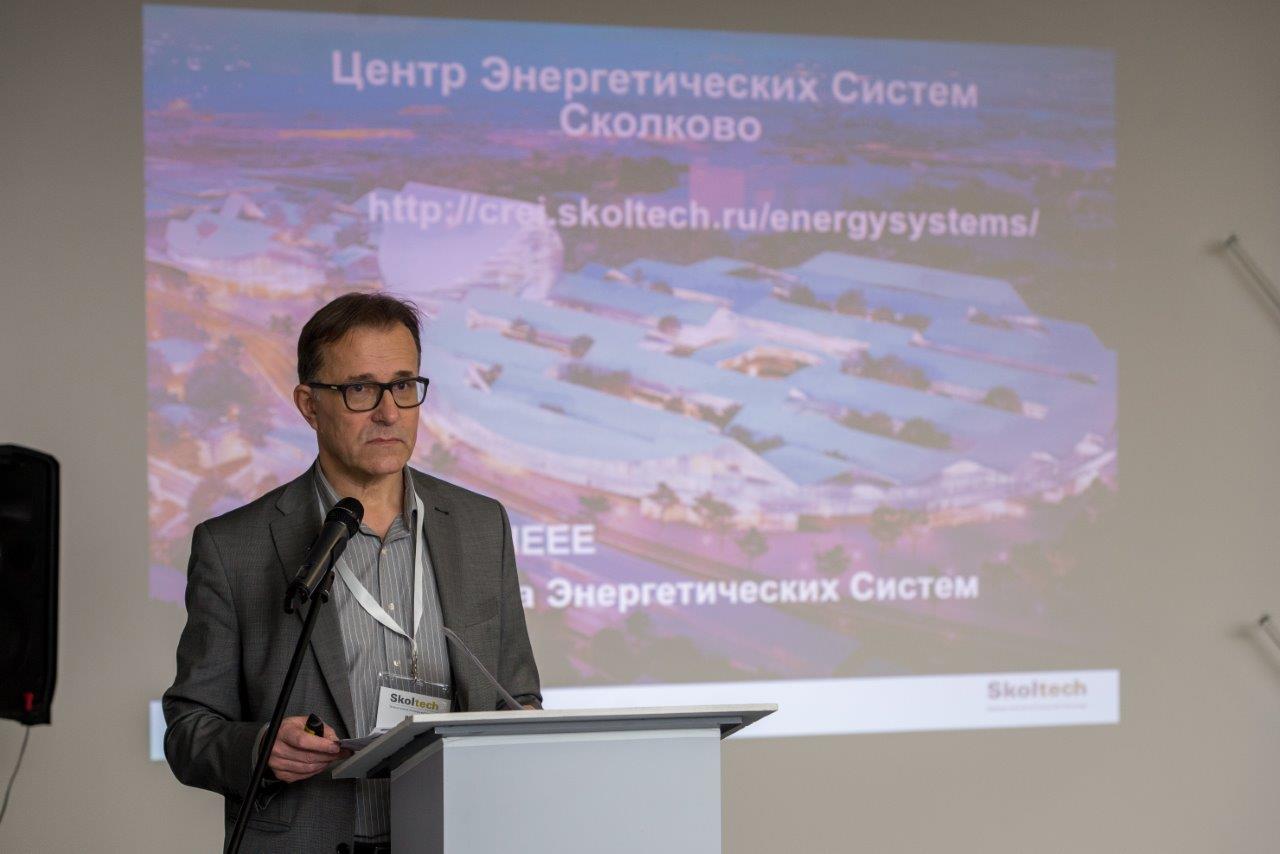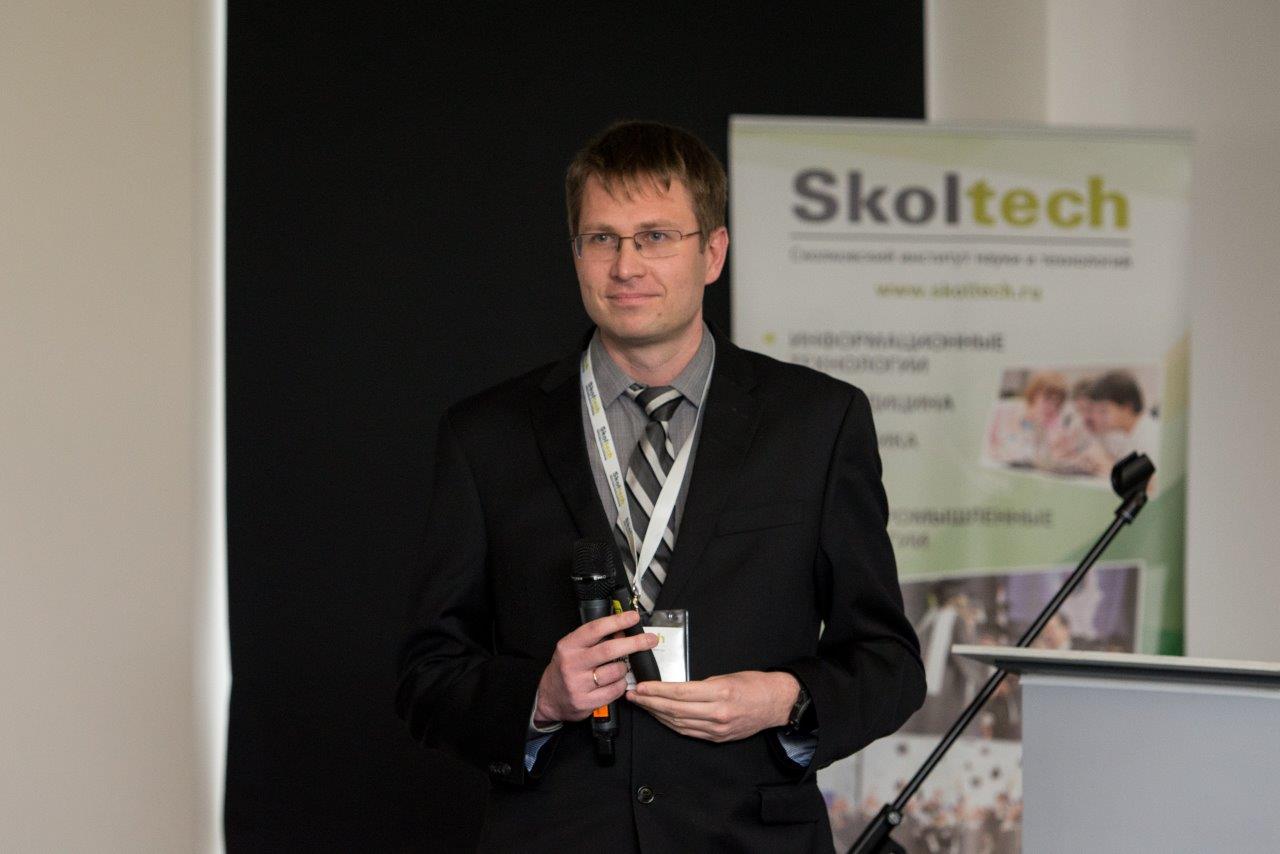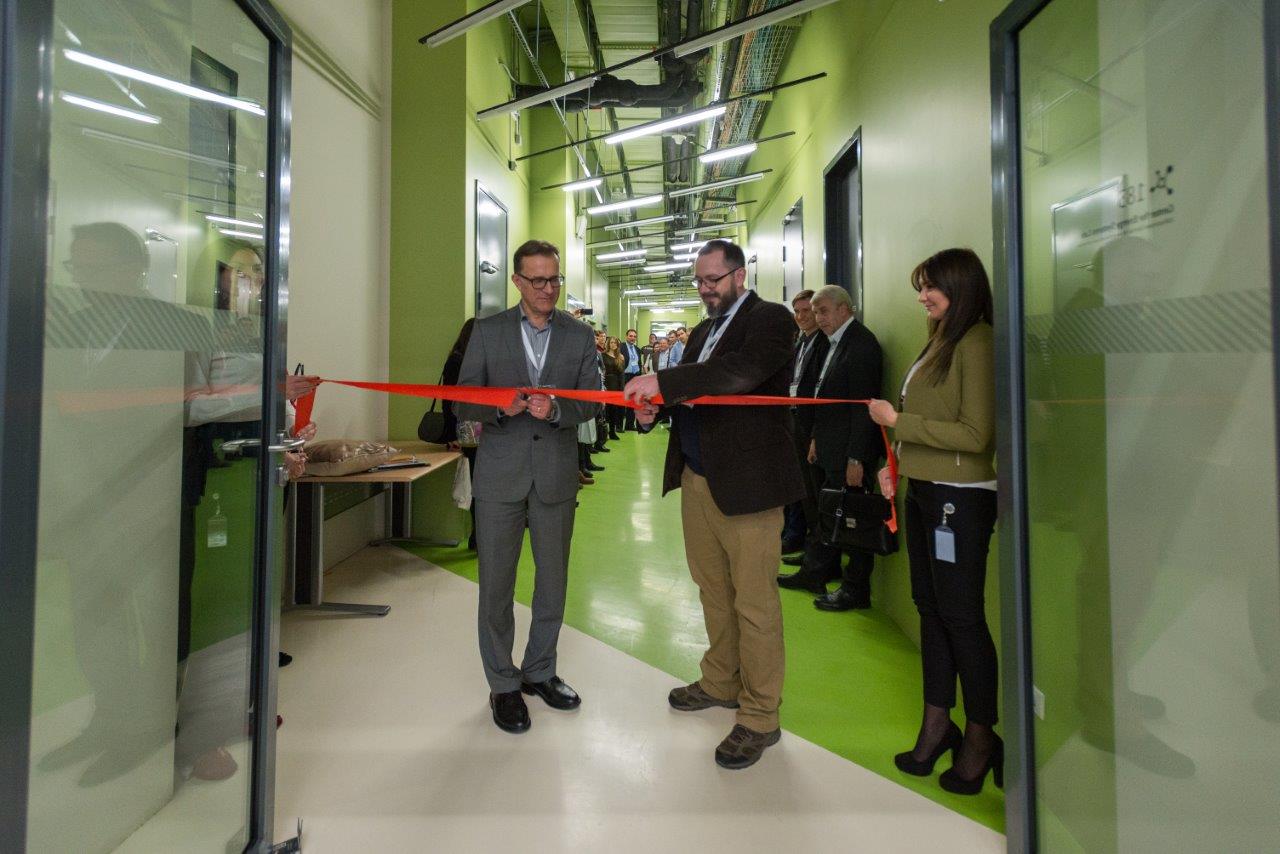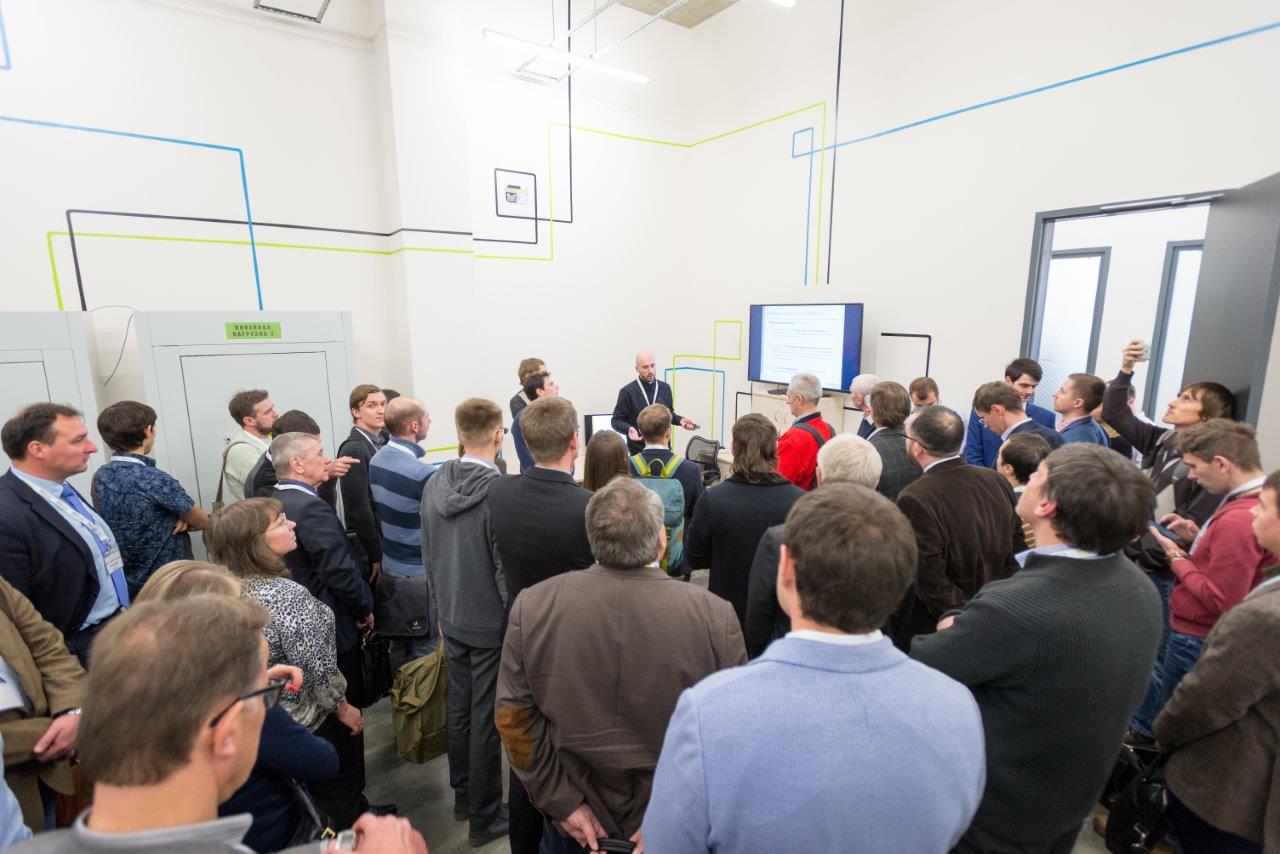
Prof. Janusz Bialek, Director of the Center for Energy Systems, opens the workshop.
On December, 2nd 2016 Skoltech Center for Energy Systems (CES) organized a workshop to highlight its main research achievements in the area of power systems and to launch its new Smart Grids laboratory. The reports were presented by professors and researchers of CES, as well as Professor Konstantin Turitsyn of MIT, the main research collaborator of the Center, and representatives of the Moscow Power Engineering Institute (MPEI), V.A. Trapeznikov Institute of Control Sciences (ICS RAS). During the workshop, the Center’s research and development achievements in areas such as methods for on-line security assessment, power system stability analysis, transmission expansion planning, optimal frequency control in future power systems, demand-side management, voltage control in distribution networks, as well as incentive mechanisms for integration of distributed generation into power system were presented.

MIT Professor Konstantin Turitsyn.
The workshop captured a considerable attention of the industry, with more than 100 people from over 30 companies attending the event, including representatives of the key ministries, energy companies and organizations, such as Ministry of Energy, Ministry of Far East, System Operator, Market Council, Rosseti, InterRAO, Rushydro, Rosenergoatom, Eurosibenergo, MOESK, Tavrida Electric etc. Each of the projects presented caused lively discussion, and at the end of the workshop, the participants noted how important and applicable the scientific research is for solving the practical tasks set for the Russian energy system.

Prof. Bialek and Prof. Alexander Ustinov, Associate Director of the Skoltech Center for Energy Systems, cut the ribbon of the new smart microgrids lab.
Representative of the National Technology Initiative (NTI) Project Office, Dmitry Korev, thanked Skoltech both for the excellent event organization and for the cooperation in creation of NTI Road Map EnergyNET. Dmitry recalled the recent Address of the Russian President to the Federal Assembly in which Vladimir Putin noted that NTI could be a bridge between the breakthrough fundamental research results and their practical implementation. According to D. Korev, “that is why it is very important to understand what global tasks in energy system management may be set, and I am glad to note that the report of Konstantin Turitsyn contains the tasks that can be solved mainly in Russia. These are the tasks that are of special interest to us, and we are ready to formulate them together with Skoltech in order to make them maximally focused on understanding of what product Russian scientists can create, that can be competitive not only in Russia, but in certain types of energy systems, including foreign ones”.

Presentation of the smart microgrids lab and its capabilities.
The representative of JSC “System Operator of the Unified Energy System” emphasized the importance of such events for understanding what Skoltech and Center for Energy Systems in particular are about, and noted that he was very impressed by the level of reports and research resources concentrated in the Center.
Oleg Barkin, Deputy Chairman of the Board of NP Market Council also expressed gratitude to the organizers and readiness for interaction: “There was a gap between the tasks discussed in Skoltech and actual practice that I saw on some of the previous events of the Energy system center, but today the common ground has been really found. In both in the most actual issues relating to distributed generation, and technical aspects of your work — you have very closely approached an actual practical questions.”
Some guests even noted that the event was the best of all in which they participated, but the most emotional feedback on the event and experience of work at Skoltech was given by one of the members of the Center:
After the projects had been presented and discussed, the guests went to the ground floor of Skoltech, where the unique for Russia laboratory of smart microgrids was launched. According to the Director of the Center for Energy Systems Janusz Bialek, “the laboratory allows studying the processes in the energy equipment and modelling of smart thermal and power grids. The installed equipment is a modernized network of electrical power network using information and communication networks and technologies to gather information on energy production and consumption, which allows automatically improving the efficiency, reliability, economic benefit as well as stability of the electric power production and distribution.”